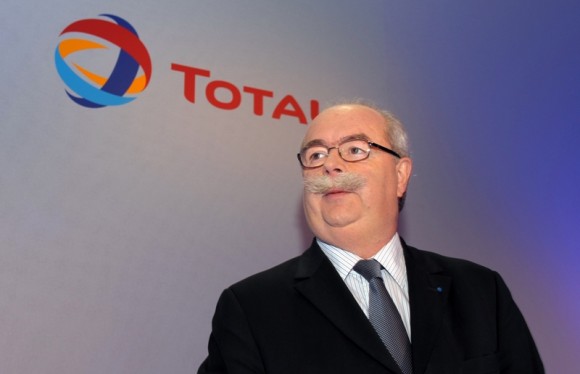
On the night of Monday, Oct. 20 , the visibility was poor at the Vnukovo airport. The control tower had given clearance to the Falcon private jet to take off. A few seconds after leaving the ground, the pilot saw a snowplow on the runway but was unable to avoid it. The landing gear caught the roof of the vehicle, flipped over and crashed a few yards away. There was just one passenger on board – Christophe de Margerie, CEO of the world’s fourth largest oil producer.

The news hit France like a bomb. At Total’s headquarters in the district of La Defense employees were stunned. The country reacted as if a chief of state had died. Tributes poured in from everywhere.
Total has a capital ranking second in the CAC 40 (the ‘Cotation Assistée en Continu’ is a benchmark French stock market index) and employs more than 100,000 people in 130 countries. It is hard to believe therefore why such a company – the jewel of the French economy – should have so many detractors in France. The day after the accident, the conservative daily Le Figaro published an article entitled, “The man who wanted the French to make peace with Total”. That man, Christophe de Margerie, was a charismatic and jovial person, full of warmth, direct but tough .
De Margerie came from an aristocratic family that could be described as representative of, ‘vieille France.’ Family members occupied prominent positions in the world of high finance, diplomacy (his cousin was ambassador to the US) and the arts. He was the grandson of Pierre Taittinger, the founder of a champagne empire. Several of his relatives own and live in an elegant apartment building tucked away in a garden, behind massive walls and a monumental gate, right at the heart of the Faubourg St Germain.
He joined Total about 40 years ago and was named CEO in 2007. In 1995, he became the head of Middle East Total, which explains his particular interest for that part of the world. The Jubail giant refinery inaugurated in 2013 by Total and Saudi Arabia, is but one example.
The main criticisms against the company concern its huge benefits, which do not profit the French economy because the company pays practically no taxes in France. The ‘marée noire’ (black tide) caused by the oil spill off the coast of Brittany in 1999 has not been forgotten. In 2010,the decision to close the Dunkirk refinery and the associated firing of more than 1,000 workers outraged the opinion. Finally, de Margerie’s policy of creating joint ventures with Russian companies Loukoi, Novatek or Gazprom and his rejection of the sanctions enforced by the West have isolated him.
De Margerie wanted to project a positive image and show his concern for the environment by encouraging renewable energy. In recent years, signs of transformation of the company had been noticeable, particularly in the reduction and higher selectivity of investments. The question now is whether de Margerie’s successors, Thierry Desmarets as chairman and Patrick Pouyanné as CEO, will bring changes to the company’s strategy or maintain the course.

About the author: Nicole Prévost Logan divides her time between Essex and Paris, spending summers in the former and winters in the latter. She will write a regular column for us from her Paris home where her topics will include politics, economy, social unrest — mostly in France — but also in other European countries. She also will cover a variety of art exhibits and the performing arts in Europe. Logan is the author of ‘Forever on the Road: A Franco-American Family’s Thirty Years in the Foreign Service,’ an autobiography of her life as the wife of an overseas diplomat, who lived in 10 foreign countries on three continents. Her experiences during her foreign service life included being in Lebanon when civil war erupted, excavating a medieval city in Moscow and spending a week under house arrest in Guinea.